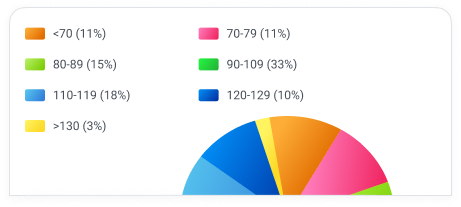Test Statistics
CFIQ Test
- 00:30:00
- 25 IQ-related items
- IQ up to 152
The CFIQ Test, or Cattell Culture Fair Intelligence Test, is a high-range IQ assessment granting a maximum score of up to 152. Under the pressure of a 30-minute time limit, it calls upon your spatial intelligence to answer a selection of 25 questions.
These require you to use your capabilities to comprehend and process three-dimensional images, geometry and shapes logically. Your right-hand brain affinity is used extensively through this test, with each test item using spatial recognition and spatial reasoning questions to solve.
See how you score from a questionnaire presenting 25 spatial items which don’t require conventional verbal knowledge to solve but instead use your ability to visualize objects within the mind’s eye.
The first score you obtain is the most accurate and retesting is therefore not recommended.
IQ Statistics compared by countries
Approximately 95% of the populace has an IQ falling between 70 and 130, leaving 2.5% below 70 and 2.5% scoring 130 and above. There are very few people who score in the upper regions of the scale. For example, Mensa is a society which only accepts people in the top 2% of all test takers. This means that only 1 in 400 people stand to potentially make the cut with the minimum IQ falling between 140 and 145.
Distribution by country
( CFIQ Test )
Statistics for IQ Haven Tests
Sample IQ Report

IQ Score Statistics per Test
IQ testing measures your crystallized and fluid intelligence, forming your general intelligence when seen as a whole. Crystallized intelligence is defined as intelligence which has been amassed from past learning and experiences. It is intelligence which supplies us with knowledge and understanding rooted in facts derived from physical encounters. The more crystallized experience we have the better we are at comprehending what we read and learn from academic sources. Fluid intelligence refers to our ability to apply acquired information and knowledge to rational problem solving and reasoning. It is a measure of our perceptual capabilities, showing our overall capacity to reason, adapt and learn new things independent of facts other forms of crystallized intelligence.

IQ Score Statistics per Time
IQ tests are extremely accurate despite outside factors such as extreme stress and predisposed thoughts having a slight effect. There is also a slight variation between scores relative to age, with younger test subjects having the higher volatility and degree for error. Essentially all IQ scores are not an exact measure but rather give you a relative range. Different IQ tests all target different evaluations which is why your IQ score rather distinguishes between the scope of your intelligence on average. The Wechsler Intelligence Scale is designed to have a mean of 100 allowing a standard deviation of 15 with the scores forming a bell curve when graphed. As you can see, at just a 15 point spread there is little margin for error.

Latest 15 results
- Anne
- Panama IQ: 94
- Tonya
- Ukraine IQ: 86
- Sam
- Colombia IQ: 94
- Udyan
- India IQ: 92
- Maaa
- United States IQ: 103
- Chibueze Mark
- Nigeria IQ: 83
- Christal Pietersz
- Netherlands Antilles IQ: 92
- Suman
- India IQ: 79
- Maria
- India IQ: 86
- Mm
- Israel IQ: 109
- Aditi Pathak
- India IQ: 114
- Somu
- India IQ: 101
- Nori
- Malaysia IQ: 96
- Luca Aeberhard
- United States IQ: 96
- Flu
- United States IQ: 98
























